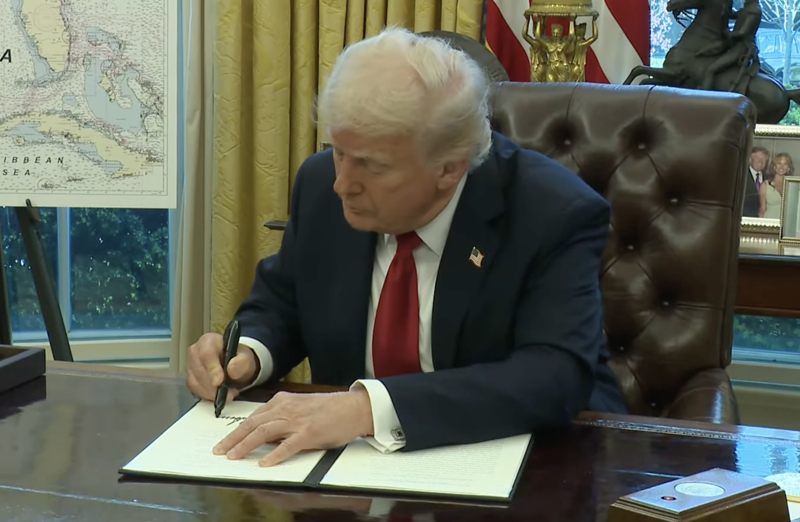President Donald Trump has named April 2 as the day to unveil sweeping new tariffs, which are taxes on imported goods that many experts warn could lead to higher prices for Americans.
Trump has argued that the tariffs will raise revenue for the federal government and incentivize companies to build in America instead of using cheap labor overseas and then shipping products to the U.S.
“IT’S LIBERATION DAY IN AMERICA!” Trump wrote on TruthSocial, a name he has coined for his new tariff policy rollout.
Ahead of Wednesday’ broad rollout of new tariffs, Trump has already placed tariffs on China, Mexico and Canada, citing their respective roles in the fentanyl epidemic which has contributed to record high overdoses in the U.S. in recent years.
Fentanyl chemicals are primarily manufactured in China and often smuggled into the U.S. via Mexico, and in some cases Canada.
Trump argues that nations around the world have taken advantage of the U.S. and that his reciprocal tariffs will tax imports from other nations to the degree that they do so to the U.S.
Critics, however, argue that Trump’s tariffs will lead to higher prices for Americans as the companies paying the tariffs pass those costs on to consumers. Some also argue that Trump may not have the authority to unilaterally set the tariff rates. Trump faces similar questions about his executive authority on a host of other policy changes.
“I can discuss costs and benefits of trade protection, but calling April 2 ‘Liberation Day’ – a day when Americans’ freedom to trade is curtailed by their own government through high taxes – should require paying royalties to the estate of George Orwell,” Harvard economist Ricardo Hausmann wrote on X.
Tariff backers, though, say that reciprocal tariffs will simply even the playing field. They could even incentivize lower tariffs overall long term.
In fact, some countries have already taken that route like Israel, which removed all tariffs this week, and Vietnam, which reduced its tariffs this week.
“Reciprocal tariffs are not about reducing free trade, but making trade even more free – if you want access to our consumer markets, then you better give us access to yours, and let all workers compete on a level playing field…” Heritage Foundation Economist E.J. Antoni wrote on X.
U.S. House Speaker Mike Johnson, showed his support Wednesday, saying tariffs are part of the president’s “proven strategy to fix our economy again, level the playing field, and put America first.”
Even within Trump’s own party some lawmakers, like Sen. Rand Paul, R-Ky., have opposed the tariffs, saying tariffs are another form of taxes on Americans.
“Tariff Wars hurt homebuilders, real estate brokers, bourbon sellers, farmers, carmakers, shippers, purchasers of steel, etc,” Paul wrote on X. “Growth in international trade is proportional to growth in GDP. A fact. If you cripple trade, you will ultimately cripple GDP. Not a good thing.”







